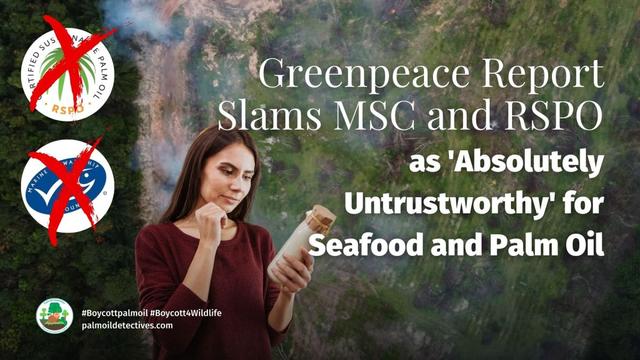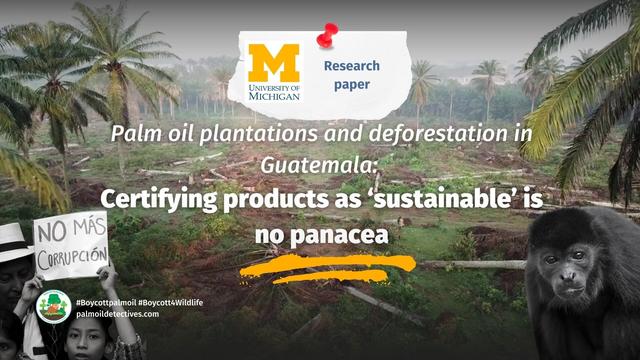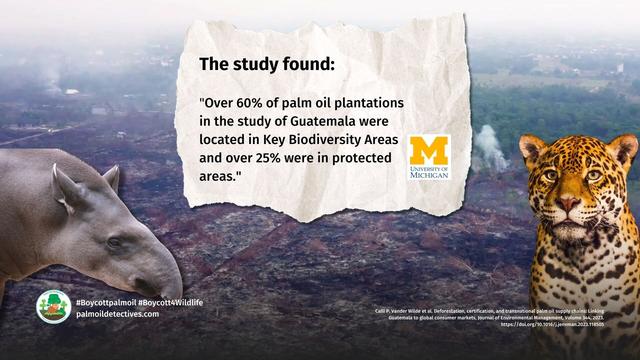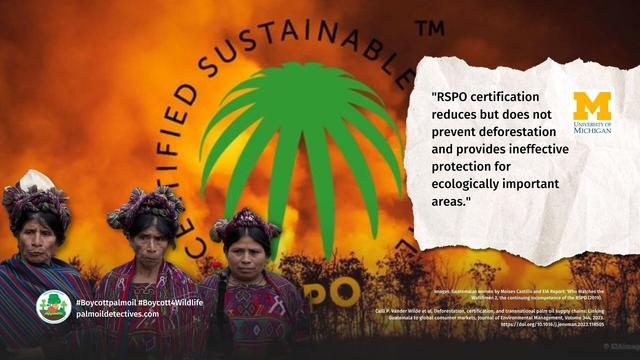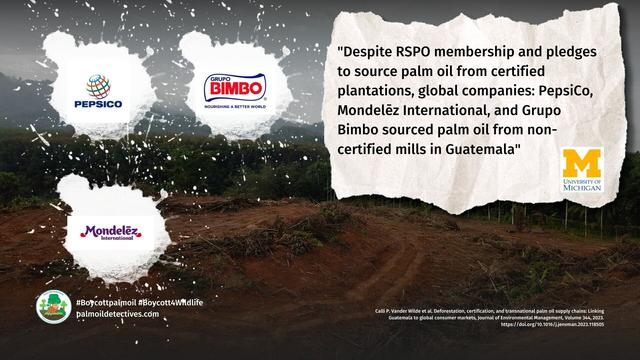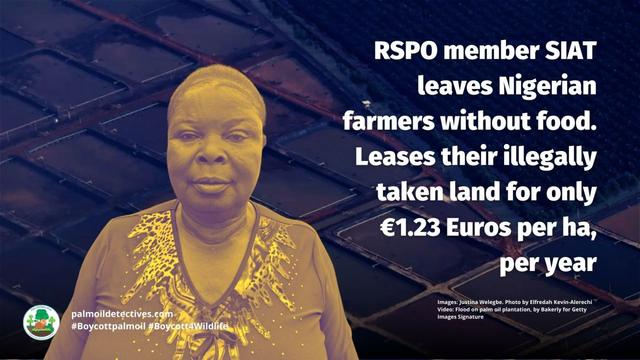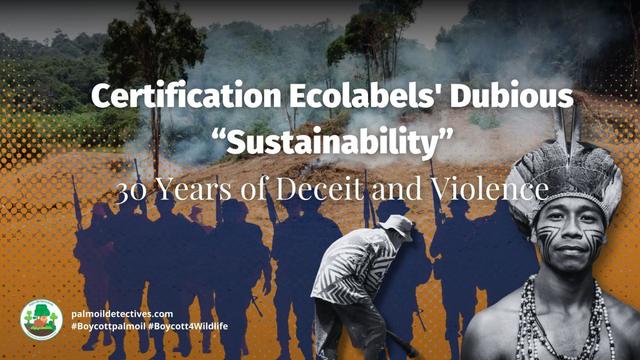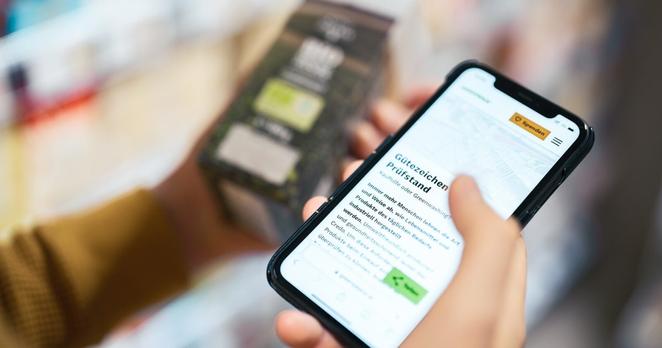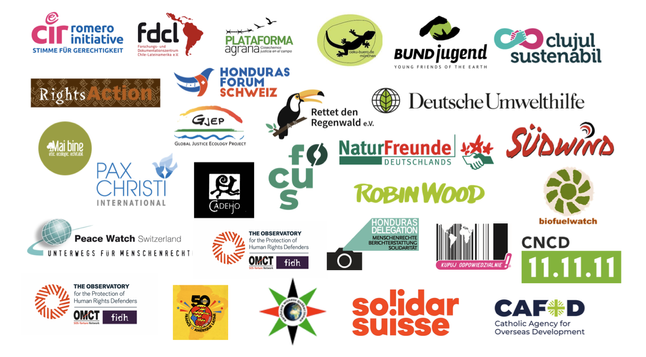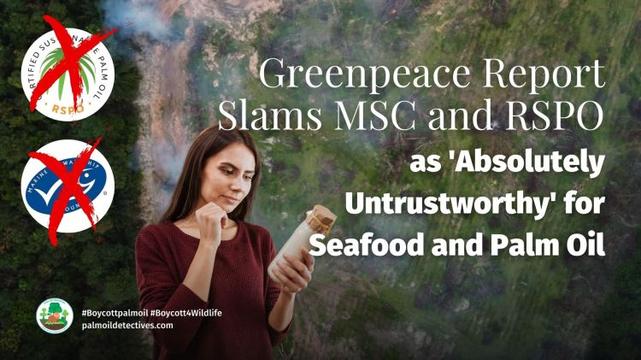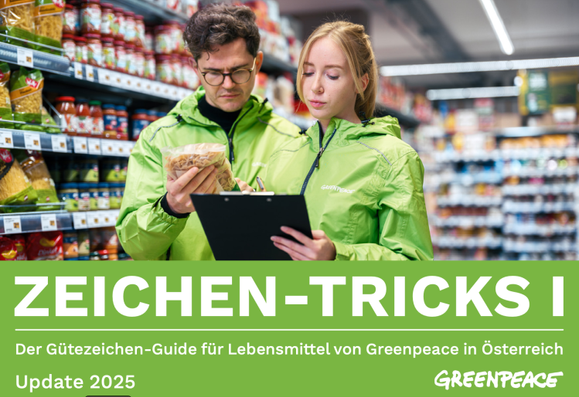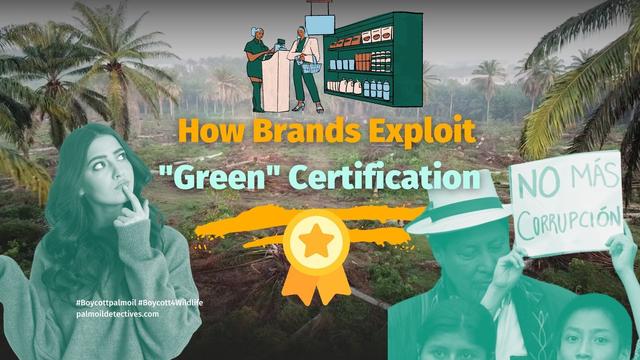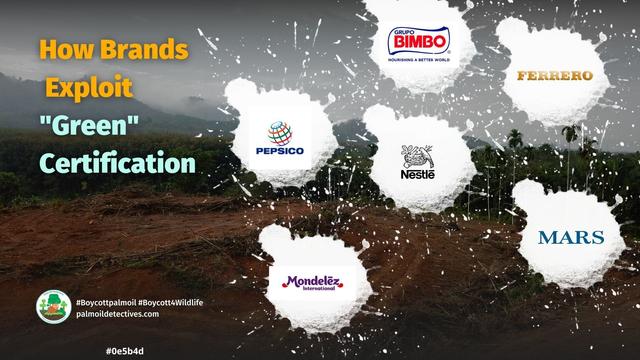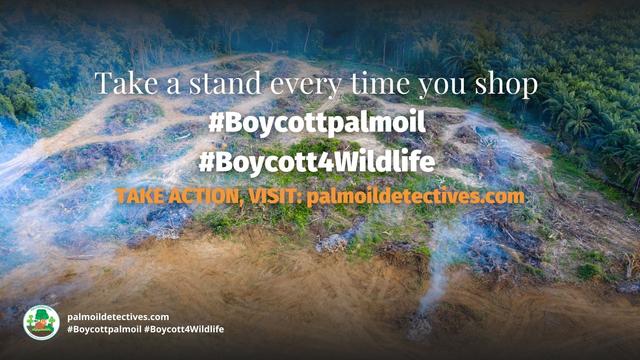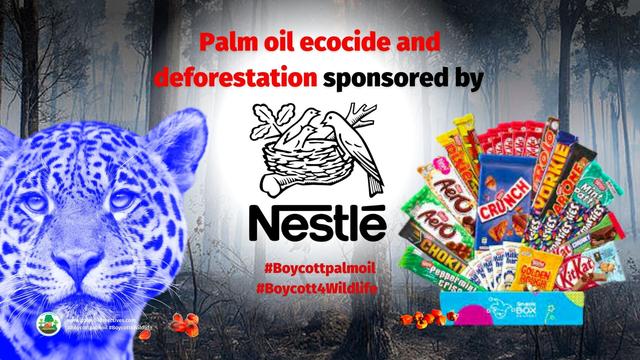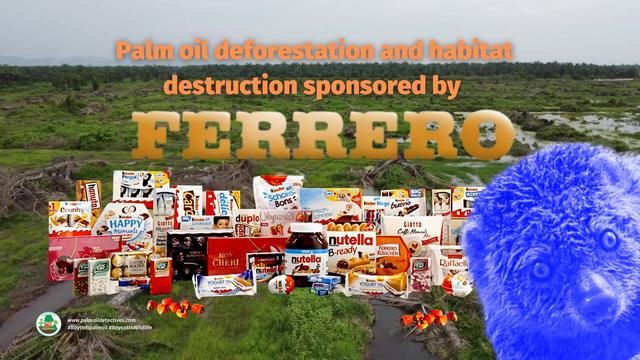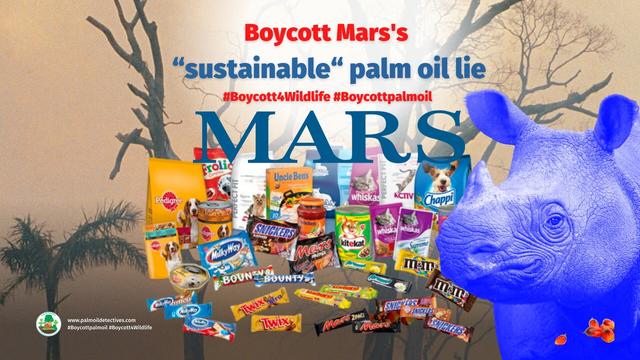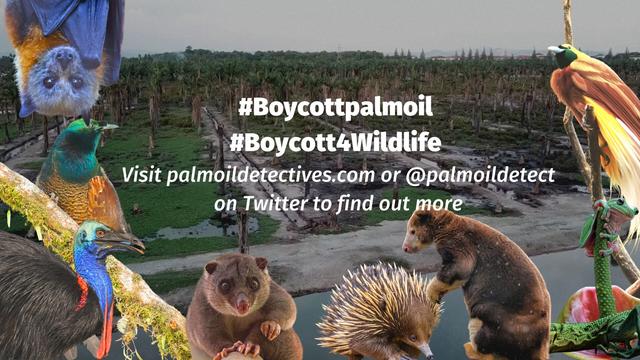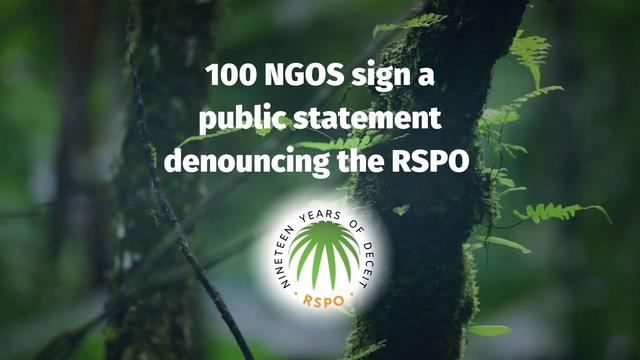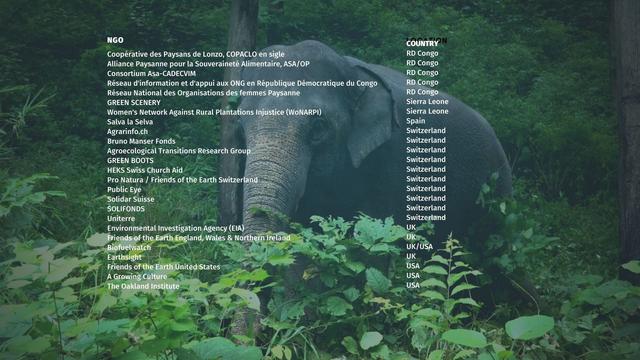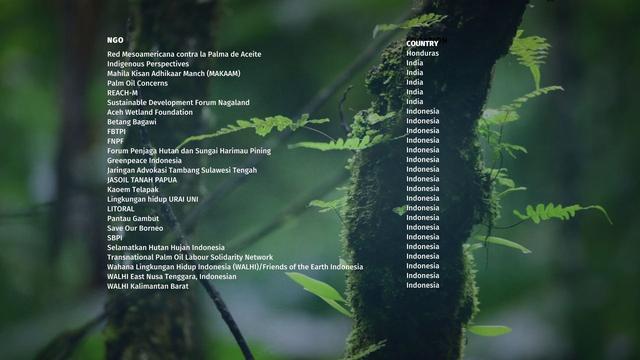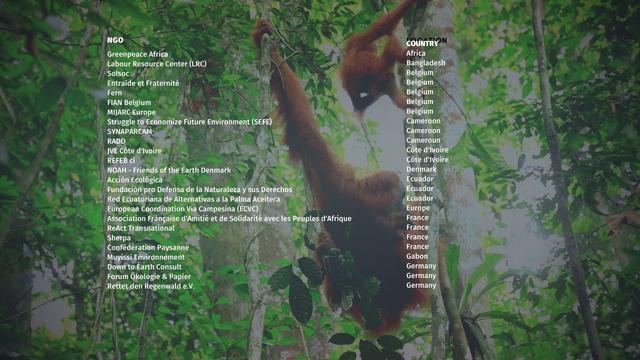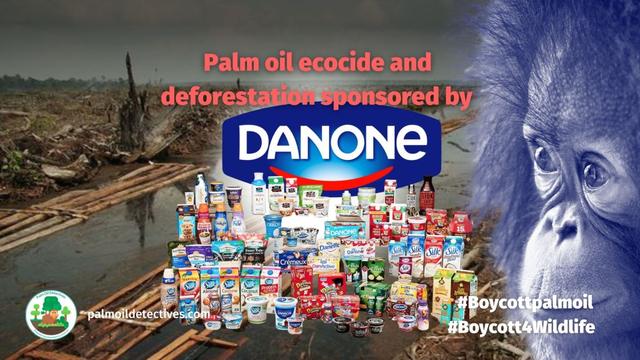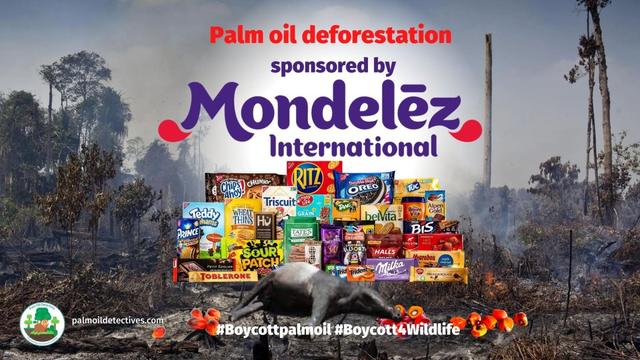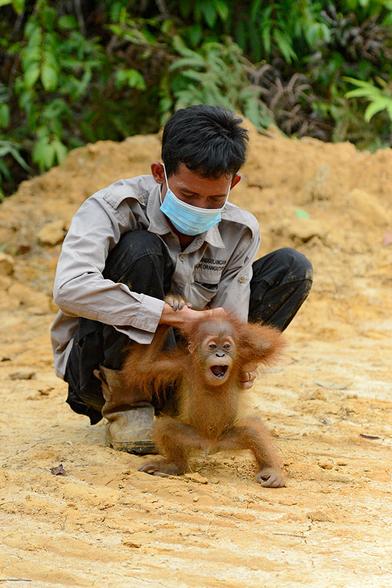Greenpeace Report Slams MSC and RSPO as ‘Absolutely Untrustworthy’ for Seafood and Palm Oil
A landmark Greenpeace report reveals that more than 25% of food labels fail to meet trustworthy sustainability standards. Clear and severe failures in ecolabel effectiveness were awarded to Roundtable on Sustainable Palm Oil (#RSPO) which certifies palm oil as “sustainable” and Marine Stewardship Council which certifies seafood as “sustainable”. Consumers are increasingly sceptical, with 62% expressing concerns that these labels are a form of #greenwashing. Greenpeace is calling for stricter regulations and transparency in the use of terms like “sustainable” or “climate-friendly” to prevent misleading environmental claims. #Greenwashing #ConsumerRights #Transparency. If you want to resist and fight against greenwashing, adopt a #vegan lifestyle and #BoycottPalmOil #Boycott4Wildlife in the supermarket.
Read Greenpeace report in German @Greenpeace report finds #seafood certified by #MSC  and #palmoil certified by #RSPO is “absolutely untrustworthy” in 2025. Resist the #ecocide and #greed. Adopt a #Vegan lifestyle and #BoycottPalmOil
and #palmoil certified by #RSPO is “absolutely untrustworthy” in 2025. Resist the #ecocide and #greed. Adopt a #Vegan lifestyle and #BoycottPalmOil 
 ️ #Boycott4Wildlife when you shop @palmoildetect https://wp.me/pcFhgU-am5
️ #Boycott4Wildlife when you shop @palmoildetect https://wp.me/pcFhgU-am5
Share to BlueSky Share to Twitter Greenwashing Exposed: MSC and RSPO mislead consumers on seafood and palm oil
Environmental organisation Greenpeace Austria has analysed 42 of the most widely used food labels and found that over 25% of them are unreliable. The findings highlight growing consumer concerns over greenwashing in the food industry.
Consumers Losing Trust
A representative survey by the research institute Integral found:
- Importance of Food Labels: 64% of respondents consider food labels important when shopping.
- Greenwashing Concerns: 62% worry that food labels are misleading and serve as greenwashing tools.
- Impact on Purchasing Behaviour: 40% of those who distrust food labels now pay less attention to them when making shopping decisions.
Criticism of Specific Labels
Greenpeace has singled out certain labels, such as the MSC certification for fish and the RSPO label for palm oil, as potentially harmful to environmental goals. Meanwhile, some labels remain credible, including Demeter, “Prüf nach!” and Bio Austria.
Call for Stricter Regulations
Greenpeace is demanding that terms like “sustainable” or “climate-friendly” only be used when backed by scientific evidence and transparent certification standards. The upcoming EU Green Claims Directive aims to prevent companies from making false or exaggerated environmental claims without scientific proof.
Time for Real Change
Consumers are calling for honest and transparent labelling, while environmental advocates warn that without stricter regulations, greenwashing will continue to deceive shoppers.
Read the full English article on Kronen Zeitung and the report (in German) on the Greenpeace website.
Greenpeace’s Guide to Quality Labels for Food
The report itself is in German and can be read here. The RSPO and MSC sections have been machine translated below for your convenience. Greenpeace considers both MSC and RSPO ecolabels to be “absolutely untrustworthy” for consumers in 2025.
Which quality labels and organic brands can I trust?
Austria has a jungle of quality seals, certification labels, and brand or quality marks. Hundreds of them appear on products when shopping in supermarkets. But which ones are truly trustworthy?
Greenpeace has examined the quality labels in the food sector. The alarming result: more than a quarter of the 42 certification labels are not or only moderately trustworthy. Some are even detrimental to achieving environmental goals – such as the MSC fish label or the RSPO palm oil label.
Quality Seals, Certification Labels, and Organic Brands
The analysis of quality labels and brands, particularly those relevant to climate and the environment, focused on four key areas:
- Standards and scope of requirements
- Labelling and distinguishability
- Traceability, transparency, and control
- Trustworthiness and credibility
Based on these criteria, the labels were categorised into:
- Highly trustworthy and particularly environmentally friendly
- Trustworthy and environmentally friendly
- Conditionally trustworthy with moderate environmental benefits
- Barely trustworthy with little or no environmental benefits
- Absolutely untrustworthy and contributing to environmental destruction
Labels and Certifications for Other Areas
For certification labels that do not primarily focus on environmental standards but instead prioritise animal welfare, social standards, or other aspects, a broader classification was used. This evaluation focused on:
- Environmentally relevant standards and the scope of requirements
- Transparency and control mechanisms
- Trustworthiness and credibility
The categories for these labels were:
- Trustworthy and environmentally friendly
- Moderately trustworthy with limited environmental benefits
- Not trustworthy, contributing to environmental destruction
REPORT : https://greenpeace.at/uploads/2025/02/greenpeace-guetezeichen-guide-lebensmittel-2025.pdf
RSPO:
The label of the Roundtable on Sustainable Palm Oil (RSPO) is an association comprising producers, traders, banks, investors, and some NGOs.
NEGATIVE ASPECTS:
- On paper, the environmental and social standards appear relatively strict, but their implementation has serious shortcomings.
- Although there is now a ban on new plantations on peatlands and a prohibition on slash-and-burn clearing for new plantations, the standard does not require the restoration of the millions of hectares of already drained peatlands where oil palm plantations currently stand. However, in the face of the climate crisis, this restoration would be crucial.
- Toxic pesticides are allowed on RSPO-certified plantations.
- Over the years, numerous reports have surfaced detailing human rights violations, including child labour, forced labour, and breaches of RSPO’s minimum standards.
ABSOLUTELY NOT TRUSTWORTHY
RSPO’s criteria are too weak to genuinely protect rainforests and are frequently not enforced. Despite RSPO certification, forests continue to be destroyed, and human rights continue to be violated. Greenpeace classifies the RSPO label as absolutely untrustworthy.
WARNING: GREENWASHING
Many food products carry labels such as “certified palm oil” or “sustainable palm oil,” which are often RSPO-certified. However, from an environmental perspective, the term “sustainable” is misleading in this context. Greenpeace considers this to be greenwashing.
MSC:
The Marine Stewardship Council (MSC) was founded in 1997 by Unilever and WWF as an initiative for responsible fishing. However, little remains of its once ambitious goals.
NEGATIVE ASPECTS:
• Even fisheries that use bottom trawling, which causes long-term destruction of the seafloor ecosystem, can receive MSC certification.
• MSC certification is still granted even when fisheries target species that are scientifically recognised as endangered. For example in Australia, the endangered orange roughie was certified as “sustainable” by MSC despite their population that is in grave peril.
NOT TRUSTWORTHY
Neither MSC nor other certification schemes apply the precautionary principle, which is essential for protecting marine life. Instead of addressing the real issues in global fisheries, MSC gives the destructive fishing industry a greenwashed image.
This is particularly alarming given that MSC’s own website acknowledges that fishing is the greatest threat to endangered marine species. Greenpeace considers this label to be untrustworthy.
WARNING: GREENWASHING
The MSC label is widely used and serves primarily as a marketing tool to boost fish product sales, claiming to be an “eco-label for wild-caught fish” and a seal of approval for sustainable fisheries. However, our oceans are already severely overfished. The only truly sustainable choice is to stop buying and consuming seafood and predatory fish altogether.
Greenpeace. (2025, February 13). Greenwashing & Co.: Ein Viertel der Gütesiegel ist nicht vertrauenswürdig. Kronen Zeitung. Retrieved February 24, 2025, from https://www.krone.at/3688558.
Greenpeace. (2025, February). Greenpeace quality label guide: Food products 2025. Greenpeace Austria. Retrieved February 24, 2025, from https://greenpeace.at/uploads/2025/02/greenpeace-guetezeichen-guide-lebensmittel-2025.pdf.
ENDS
Read more about RSPO greenwashing and learn how you can #Boycottpalmoil, #Boycott4Wildlife
Research: Climate Change Collapsing Insect Numbers by 63%
The world may be facing a devastating “hidden” collapse in insect species due to the twin threats of climate change and habitat loss. #Palmoil  #soy #meat
#soy #meat  and #cocoa
and #cocoa  #agriculture along…
#agriculture along…
Read more
How banks and investors are bankrolling extinction and ecocide
This article highlights the significant role that banks and investors play in fuelling a global biodiversity crisis – particularly in relation to palm oil, meat, soy and timber deforestation.
By financially supporting…
Read more
Guaranteeing Ecocide: The Green Lie of Palm Oil Certification
For decades, the palm oil industry, backed by the RSPO, has misled consumers with the false promise of “sustainable” palm oil. Behind this green façade lies a brutal reality of deforestation, human rights…
Read more
How Brands Exploit “Green” Certification
Brands and businesses may be tempted to exploit “green” certifications to garner a larger market share at the expense of integrity.
Read more
August 19th is #WorldOrangutanDay
Although #WorldOrangutanDay falls on the 19th of August, in our opinion, every day deserves to be World Orangutan Day! So here is an infographic that you can download, print and share however you…
Read more
Load more posts
Something went wrong. Please refresh the page and/or try again.
Take Action in Five Ways
1. Join the #Boycott4Wildlife on social media and subscribe to stay in the loop: Share posts from this website to your own network on Twitter, Mastadon, Instagram, Facebook and Youtube using the hashtags #Boycottpalmoil #Boycott4Wildlife.
Sign Up
2. Contribute stories: Academics, conservationists, scientists, indigenous rights advocates and animal rights advocates working to expose the corruption of the palm oil industry or to save animals can contribute stories to the website.
Wildlife Artist Juanchi Pérez
Read more
Mel Lumby: Dedicated Devotee to Borneo’s Living Beings
Read more
Anthropologist and Author Dr Sophie Chao
Read more
Health Physician Dr Evan Allen
Read more
The World’s Most Loved Cup: A Social, Ethical & Environmental History of Coffee by Aviary Doert
Read more
How do we stop the world’s ecosystems from going into a death spiral? A #SteadyState Economy
Read more
3. Supermarket sleuthing: Next time you’re in the supermarket, take photos of products containing palm oil. Share these to social media along with the hashtags to call out the greenwashing and ecocide of the brands who use palm oil. You can also take photos of palm oil free products and congratulate brands when they go palm oil free.
https://twitter.com/CuriousApe4/status/1526136783557529600?s=20
https://twitter.com/PhillDixon1/status/1749010345555788144?s=20
https://twitter.com/mugabe139/status/1678027567977078784?s=20
4. Take to the streets: Get in touch with Palm Oil Detectives to find out more.
5. Donate: Make a one-off or monthly donation to Palm Oil Detectives as a way of saying thank you and to help pay for ongoing running costs of the website and social media campaigns. Donate here
Pledge your support and #palmoil certified by #RSPO is "absolutely untrustworthy" in 2025. Resist the #ecocide and #greed. Adopt a #Vegan lifestyle and #BoycottPalmOil
️ #Boycott4Wildlife when you shop @palmoildetect
